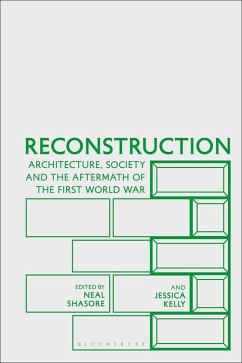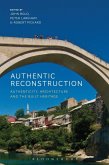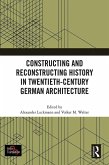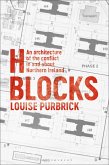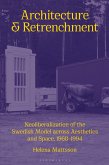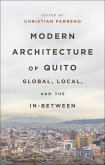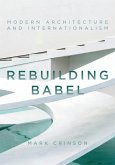Commendation, the Colvin Prize 2023 (Society of Architectural Historians of Great Britain)
Reconstruction explores the impact of the First World War on the built environment - examining the immediate and longer term aftermath of the Great War on the architecture of Britain and the British Empire during the interwar years.
While much attention has been paid by historians to post-war architectural reconstruction after 1945, the earlier developments of the interwar period (1919-1939) have been comparatively overlooked. This volume reveals how the architectural developments of this period not only provided important foundations for what happened after 1945 - they are also of real significance in their own right.
Sixteen essays written by leading and emerging scholars bring together new and diverse approaches to the period - a period of reconstruction, fraught with the challenges of modernity and democratisation. The collection considers the complex effects of reconstruction on design, discourse, practice, and professionalism, and deals with the full spectrum of architectural styles and approaches, privileging neither Modernism nor traditional styles like the neo-Georgian. It brings to the fore social and political histories of the built environment, and makes important postcolonial interventions into the architectural history of British Imperialism at home and in its far reaches; in Cairo, South Africa, Australia, and India.
Reconstruction explores the impact of the First World War on the built environment - examining the immediate and longer term aftermath of the Great War on the architecture of Britain and the British Empire during the interwar years.
While much attention has been paid by historians to post-war architectural reconstruction after 1945, the earlier developments of the interwar period (1919-1939) have been comparatively overlooked. This volume reveals how the architectural developments of this period not only provided important foundations for what happened after 1945 - they are also of real significance in their own right.
Sixteen essays written by leading and emerging scholars bring together new and diverse approaches to the period - a period of reconstruction, fraught with the challenges of modernity and democratisation. The collection considers the complex effects of reconstruction on design, discourse, practice, and professionalism, and deals with the full spectrum of architectural styles and approaches, privileging neither Modernism nor traditional styles like the neo-Georgian. It brings to the fore social and political histories of the built environment, and makes important postcolonial interventions into the architectural history of British Imperialism at home and in its far reaches; in Cairo, South Africa, Australia, and India.

